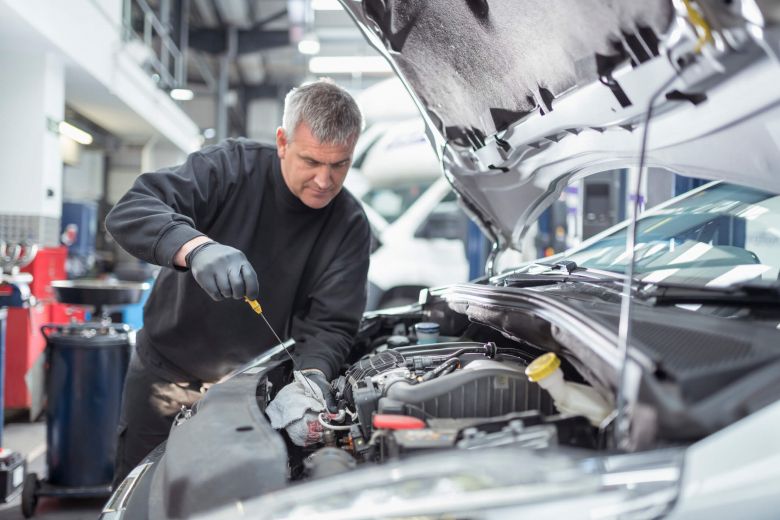Your comprehensive guide to car repair services
Car repair services play a critical role in keeping vehicles safe, efficient, and roadworthy. From routine maintenance tasks like oil changes to complex engine repairs and diagnostics, these services ensure vehicles remain in top condition throughout their lifespan. In this guide, we explore the current landscape of car repair services, their importance, new industry developments, legal frameworks, useful tools, and frequently asked questions.
Understanding Car Repair Services

Car repair services encompass a broad range of mechanical and electrical work aimed at restoring or maintaining a vehicle's functionality. These services are offered by independent garages, authorized service centers, mobile mechanics, and dealership repair shops. Common services include:
-
Engine diagnostics and repair
-
Brake system maintenance
-
Suspension and steering work
-
Transmission services
-
Tire replacement and alignment
-
Battery and electrical system checks
With vehicles becoming more technologically advanced, repair services have also evolved. Today’s mechanics often need training in both mechanical and computer systems to effectively diagnose and repair modern cars.
Why Car Repair Services Matter Today
The significance of car repair services has grown due to several factors:
-
Increased Vehicle Ownership: With millions of vehicles on the road globally, the demand for regular maintenance and urgent repair is constant.
-
Complex Vehicle Systems: Modern cars rely heavily on electronics and sensors, making DIY repairs difficult and risky without professional help.
-
Safety Considerations: Poorly maintained vehicles increase the risk of accidents due to faulty brakes, steering problems, or engine issues.
-
Cost Efficiency: Regular servicing prevents major breakdowns, saving car owners from high repair bills in the future.
-
Environmental Impact: Proper vehicle maintenance reduces harmful emissions, supporting cleaner air and compliance with emission norms.
Who It Affects:
Car owners, fleet operators, insurance companies, public transportation departments, and rideshare drivers all rely on consistent and quality repair services.
Problems It Solves:
Timely car repairs help reduce roadside emergencies, prolong vehicle life, improve fuel efficiency, and ensure legal compliance with safety regulations.
Recent Updates and Trends in 2024–2025
Several developments have reshaped the car repair industry recently:
| Trend | Description |
|---|---|
| EV Repairs on the Rise | As electric vehicle (EV) adoption grows, specialized repair centers are emerging. |
| Mobile Repair Services | Services like doorstep diagnostics and repair have gained popularity post-COVID. |
| Use of AI Diagnostics | Artificial intelligence tools now assist mechanics in identifying issues faster. |
| Subscription-Based Services | Some repair providers offer monthly maintenance plans with flat-rate services. |
| Eco-Friendly Workshops | A rise in workshops using eco-conscious methods and materials. |
Laws and Regulations Impacting Car Repairs
Regulations related to car repair services vary by country and region. Below are some typical regulatory aspects:
| Regulatory Area | Details |
|---|---|
| Right to Repair | Laws in countries like the U.S. and EU mandate manufacturers to share repair info with independent garages. |
| Environmental Compliance | Workshops must manage waste oil, batteries, and emissions per local laws. |
| Certification Requirements | Mechanics often need licenses or certifications (like ASE in the U.S.) |
| Insurance Protocols | Repairs for insured vehicles may only be covered if done by approved service centers. |
In India, the Bharat Stage VI norms impact repair requirements for emission-related systems, and service centers must meet pollution control standards.
Tools and Resources to Assist You
Whether you’re a vehicle owner or a service provider, several tools can streamline the car repair process:
Useful Apps and Tools
| Name | Use Case | Platform |
|---|---|---|
| OBD Auto Doctor | Reads engine error codes via OBD2 scanners | Android, iOS |
| RepairPal | Cost estimation for repairs | Web, Android, iOS |
| YourMechanic | Book mobile repair services at home | Web, Mobile App |
| CARFAX Car Care | Maintenance tracking based on VIN | Android, iOS |
| AutoZone Repair Guide | DIY repair instructions for various models | Web |
Other Resources
-
National Institute for Automotive Service Excellence (ASE): Offers certification and training resources for mechanics.
-
Government Portals: Many transport departments provide information about approved service centers and inspection facilities.
-
YouTube Channels: Channels like "ChrisFix" offer educational content for understanding car maintenance basics.
Frequently Asked Questions
1. How often should I service my car?
Most manufacturers recommend servicing your vehicle every 10,000 to 15,000 kilometers or every 6 months, whichever comes first. However, high-mileage drivers or those in harsh climates may need more frequent checks.
2. What is the difference between a dealership and an independent garage?
Dealerships specialize in one brand and often use OEM (Original Equipment Manufacturer) parts. Independent garages may offer broader service at a lower cost, often using aftermarket or OEM-equivalent parts.
3. Are mobile car repair services reliable?
Yes, many certified mobile mechanics offer the same services as a garage. However, complex repairs still require garage infrastructure. Always check the technician’s certification and reviews before booking.
4. Can I claim insurance for all types of repairs?
Only repairs linked to covered events (like accidents or theft) are reimbursed. Routine maintenance, wear and tear, and cosmetic fixes typically aren't included unless you have a comprehensive package.
5. How do I avoid being overcharged?
Get multiple quotes, request a detailed invoice, and use apps like RepairPal to understand average costs in your area. Ask for old parts back when replacements are made to ensure transparency.
Conclusion
Car repair services are essential for maintaining the safety, efficiency, and longevity of vehicles. As the industry evolves with the advent of electric vehicles, AI-based diagnostics, and sustainable practices, staying informed about your repair options, rights, and tools is more important than ever. By using trusted resources, understanding the applicable laws, and regularly servicing your vehicle, you can ensure smooth and cost-effective ownership in the long run.